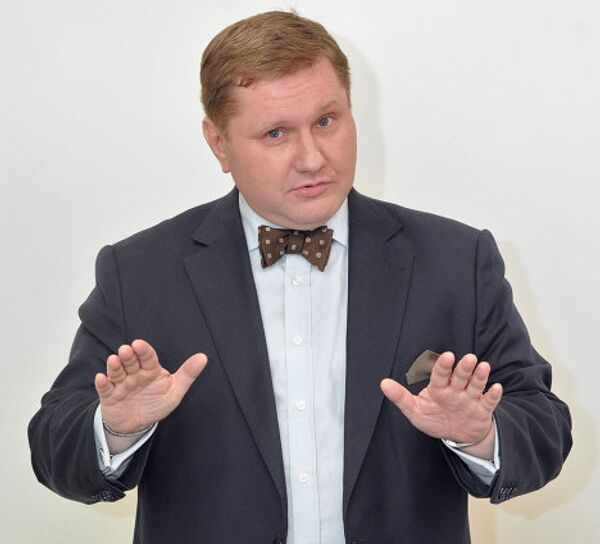Working for an NGO – especially a foreign-funded one – in today’s Russia is rather like being the main protagonist in a computer game like Temple Run. No matter how many hurdles you jump over and how many monsters you dodge, there is always a new danger in your path.

Forty-three NGOs in 16 Russian regions were subjected to very thorough and detailed checks last week by a variety of agencies, including the state prosecutor’s office, tax police and ministry of justice. All these non-governmental organizations have one thing in common: They either receive funding from abroad or are themselves Russian branches of foreign NGOs. Some, like Agora and Memorial, deal with human rights and election monitoring. Others, like the Russian offices of Germany’s Konrad Adenauer Foundation, are involved in various kinds of civic society issues. German foundations that are linked to political parties also maintain contacts with Russian political parties of similar ideological colors. Other organizations, like France’s Alliance Francaise, focus on cultural exchanges and language learning. But even the Alliance wasn’t spared an hours-long search of its offices, although it has never been mentioned as being involved in anything that could even remotely be construed as political activity.
The biggest irony befell the Konrad Adenauer Foundation’s Russian office, which represents the ruling Christian Democratic Union of Chancellor Angela Merkel. It was raided despite the fact that it maintained close relations with the United Russia party, the Kremlin’s parliamentary façade. For this it was regularly criticized by the media and opposition at home in Germany.
Paris, Washington D.C. and Berlin have demanded explanations from Moscow. President Vladimir Putin will have to face unpleasant questions from Merkel when he meets her in Hanover early this month. However, the Russian authorities look unlikely to relent over their pressure on NGOs, which are under a new law supposed to register as “foreign agents” if they receive funding from abroad.
This is a matter of principle for the Kremlin. It is easier to explain away the social and political unrest as a consequence of “meddling by foreigners”’ than to admit that the current political system is in crisis and that society is gradually waking up to this fact. In such situations, Russian rulers have always recurred to the time-tested “Enemy at the gates!” slogan. This tactic has serious resonance, even now, when Russia is more open to the world than ever before. Old phobias die hard, and a lot of Russians still perceive the outside world with suspicion. The fact that less than 20 percent of the population has a passport is an important factor in perpetuating this mistrust. More than 20 years after the collapse of the USSR, Russians are worse traveled than even the famously isolationist Americans. The view of Russia as a unique civilization that is neither East, nor West, is widespread (although I still have to meet a person who can describe to me what exactly constitutes this uniqueness).
Preserving the “besieged fortress” mentality is among the things that the Russian authorities consider indispensable for maintaining control over the situation. It is in fact one of the few tools for shoring up public opinion and discrediting the opposition (both current and potential) that remains at the Kremlin’s disposal. Another tool is financing NGOs that are loyal to the government. President Putin has allocated nearly 2.4 billion rubles ($80 million) to be distributed in grants to Russian non-governmental organizations in 2013. So no matter what they say in Washington or the EU capitals, the pressure on NGOs will continue. To cease it would be tantamount to announcing that there is no enemy behind the closed fortress gates.
The views expressed in this article are the author’s and may not necessarily represent those of RIA Novosti.
What is Russia's place in this world? Unashamed and unreconstructed Atlanticist, Konstantin von Eggert believes his country to be part and parcel of the "global West." And while this is a minority view in Russia, the author is prepared to fight from his corner.
Konstantin Eggert is a commentator and host for radio Kommersant FM, Russia's first 24-hour news station. In the 1990s he was Diplomatic Correspondent for “Izvestia” and later the BBC Russian Service Moscow Bureau Editor. Konstantin has also spent some time working as ExxonMobil Vice-President in Russia. He was made Honorary Member of the Order of the British Empire by Queen Elizabeth II.
Due West: The Right to Bear Arms: An Issue to Divide Any Society
Due West: Hopes for the New Pope
Due West: Putin Plots to Avert a Crisis While Retaining Power
Due West: Coming to the Polling Station Near You – New Russian Conservatives
Due West: Russia’s Cancerous Corruption Needs New Class Therapy
Due West: Why the Kremlin Flirts With Stalin
Due West: Russia Lacks a Real Conservative Movement
Due West: The Kremlin Wants Tight Control and No Surprises
Due West: Putin’s Revolutionary Message to Russia’s Ruling Elite



